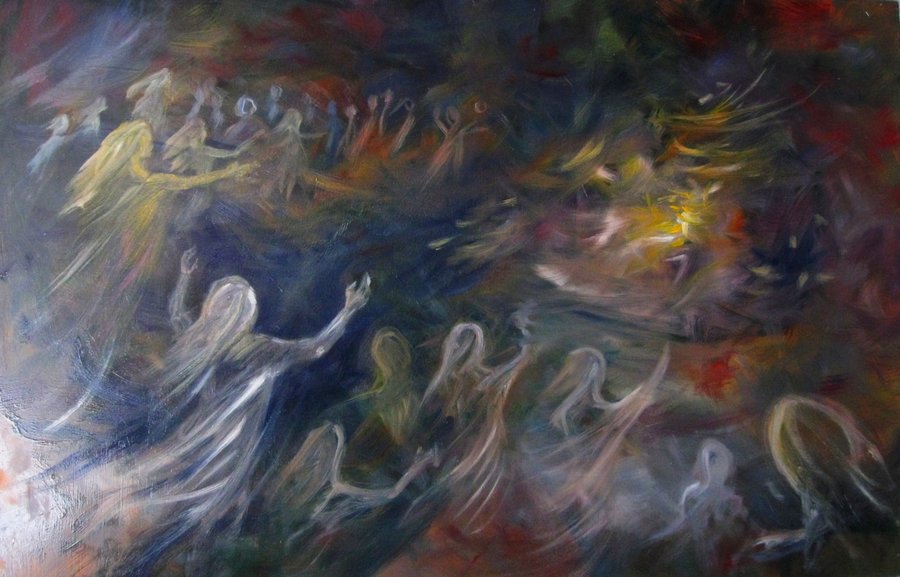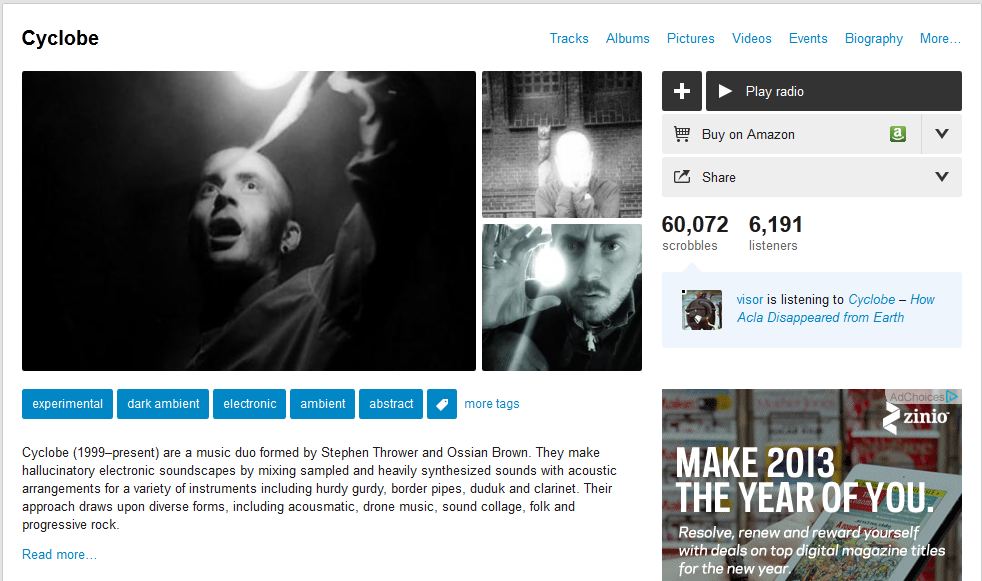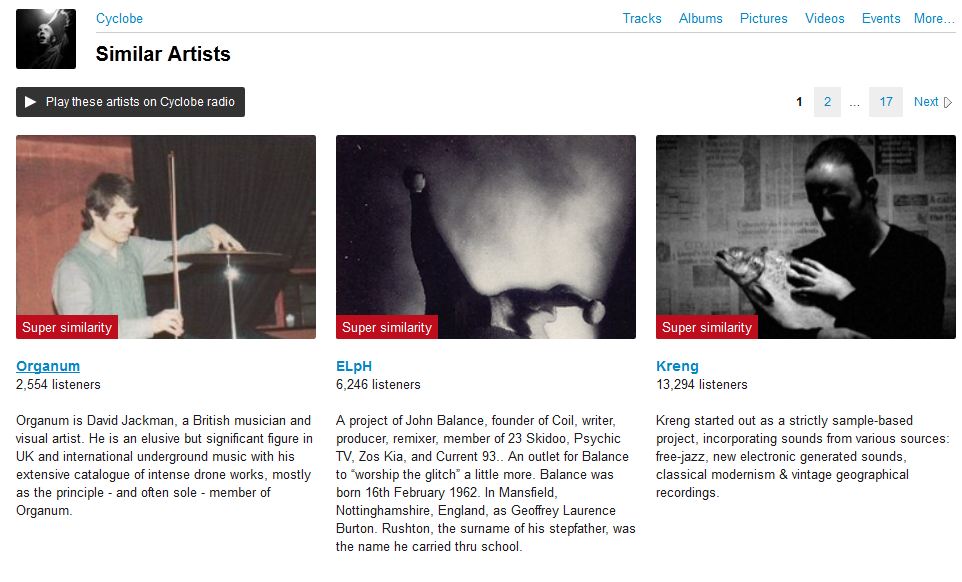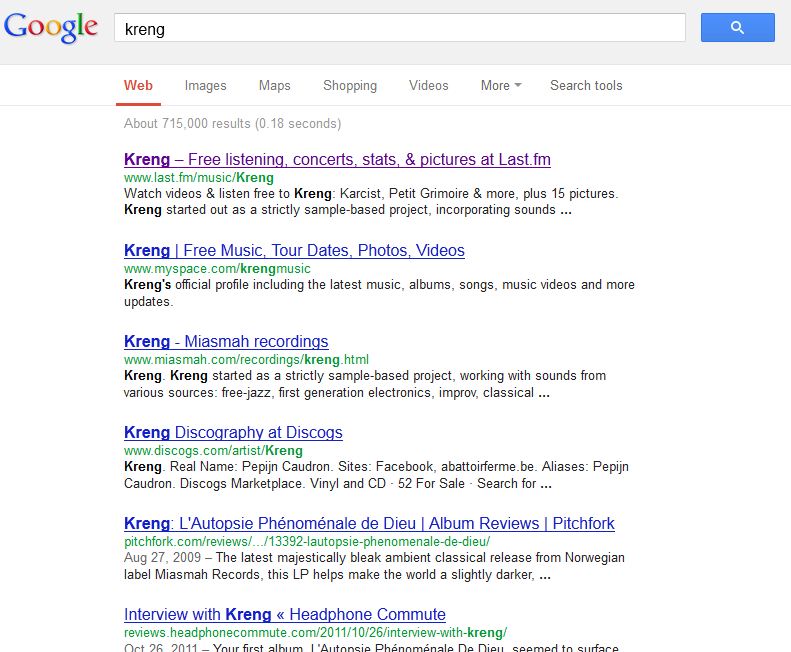Associative Music Searching (AMS)
Urban dictionary defines Audiophile as “ A person who thoroughly enjoys listening to a wide selection of music, and of varied musical genres.” I have always felt this is the only way to listen to music. Why settle for a few genres when music like art should be tasted in variety?
Can we leave this up to our radio stations to show us the latest and greatest tunes? I am afraid not, outside of college radio, radio stations work off of a top xxx list. If it’s not on a billboard hit list, chances are you won’t ever hear of it.
Today I am going to be sharing what I have found to be the best method for discovering new music, using what I dub Associative Music Searching
Definitions:
Associative wha??
Associative Music Search is hijacked from the principle of Associative learning
Or as Wikipedia states:
Associative learning is the process by which an association between two stimuli or a behavior and a stimulus is learned. The two forms of associative learning are classical and operant conditioning. In the former a previously neutral stimulus is repeatedly presented together with a reflex eliciting stimuli until eventually the neutral stimulus will elicit a response on its own.
Clear as the Ala Wai water right? – Lets try this again – Associative learning = You like deep fried shrimp? You’ll probably like deep fried mahi-mahi.
On that basis AMS – Associative Music Searching : Is the result of searching for an Artist or band that you are familiar with and finding similar sounding or like-minded genres.
Example = I think Skinny Puppy is a cool Band = I’ll search for similar bands that either sound or are associated with Skinny Puppy in some way.
Requirements:
Formula for Associative Music Searching =
[ A Compared to B = Result ] [Validate Data]
A: Artist / Band we think is cool.
B : will be our Data Set or Database- We will be using The Last Fm.
Results = New Discovery!
Validate Data: Optional, verify your results.
With terms and conditions out of the way lets begin with the actual walkthrough
The Walkthrough
A: Artist or Band we think sounds superb.
I have selected the works of the magi duo Cyclobe for our example.
Again, We like the sound of the Cyclobe (who doesn’t?) and we want to find similar artists that sound like them.
Or similar genres relating to Cyclobe.
B:Our Data Set or Database: We will be using the last.fm as our database.
Open your web browser (or click on the link provided) of choice and go to: www.last.fm .
Once you arrive at the site locate the music search entry.
Type in your band’s name: Cyclobe for our example and hit enter or click the magnifying glass.
Click on View Cyclobe or view (bandname)
In blue we can view what genre in the instance is associated with our band. We could at this point explore similar bands by clicking on any of the genre types.
However what we are data mining for particularly are bands that sound like Cyclobe specifically.
Near the bottom of the page you will see
Let’s click on the Similar artists link for a better view.
We can now see a short summary of the like-sounding bands, the level of similarity, and listeners. We can use the results to assist us in our search.
For our example, I will select the Artist Kreng.
Kreng
13,294 listeners
Kreng started out as a strictly sample-based project, incorporating sounds from various sources: free-jazz, new electronic generated sounds, classical modernism & vintage geographical recordings.
The description alone warrants exploration.
Let’s click on the Kreng link and find out more about the artist.
We see a similar results to our Cyclobe search. Our genre tags, similar artists,Photos of the artist and music samples. Listening to a few sample tracks of Kreng. I am very pleased with the sound of the artist and yes the sound is very akin to Cyclobe. But how do we know if Kreng is indictive to Cyclobe in terms of all music or philosphy?
Validation
We will now validate our search results against
• Bands Website
• Amazon
• Youtube
• Periodicals/interviews
Google search of artist :
As you can see from the search results there is a Myspace page for the artist, artist interviews, Miasmah recordings (the label of the band) page and more.
This a good start for your result research on the band. Feel free to add Google search parameters to focus your Google searching. Here is a great article on Google Search strings
Youtube.com is also a great validator:
A Youtube search will give you videos the band has done. This will provide a visual representation of the band.
Youtube is also a quick way to hear most of the bands’ catalogues of sound.
Other Sources of Validation? If you are lucky enough to have a local music store. My favorites locally are
Jelly’s Hawaii
Hungry Ear Records
I can assure you the employees are walking Smithsonians of music lore.
Otherwise
Amazon.com will give you online reviews based on user data. Although this can be a bit hit-or-miss as you may stumble across troll postings, statistically the reviews should give you a good idea.
Periodicals? Under The Radar. In my opinion the best printed reference for not only music discovery but reviews and interviews.
You are now ready to begin your AMS. I must forewarn you about music discovery and the illuminating effects it may cause. I will do so in the text of the Simalarion.
At first Eru Ilúvatar, the One, the All-Father, lived alone in the Timeless Halls amid the Void. Out of his thought he bore the Ainur, the Holy Ones, whom he kindled with the Flame Imperishable. Teaching them to sing, he gave them a theme on which all of them here to sing together.
One of the Ainur, Melkor, whom Ilúvatar had given the greatest gifts of power and knowledge, had gone often into the Void in quest of the Flame Imperishable. This he wanted to use to make things of his own. He did not find it there; it lives only with Ilúvatar. Melkor, though, grew different from the other Ainur as he wandered in the Void.
When the Ainur sang together, then, Melkor did not sing Ilúvatar’s theme, but put his own themes into the great music. Discord arose. Most of the Ainur stayed with Il´uvatar’s theme. Some of them, though, grew downcast at the discord and lost track of the music; others even followed Melkor’s lead. Twice, to bring the music back into line with its goal, Ilúvatar put new themes into the music. Twice Melkor kept the discord going till Ilúvatar ended the music with a mighty crash.







